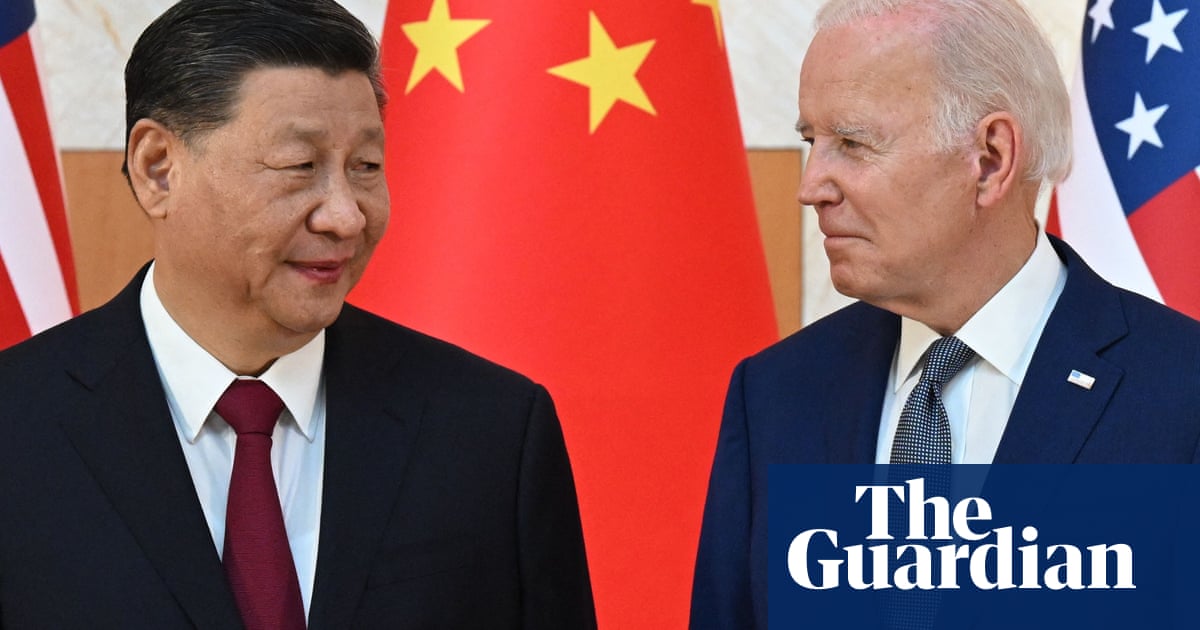Biden signs order banning certain US investments in Chinese technology - 4 minutes read

Joe Biden on Wednesday signed an executive order that will narrowly prohibit certain US investments in sensitive technology in China and require government notification of funding in other tech sectors.
The long-awaited order authorises the US treasury secretary to prohibit or restrict certain US investments in Chinese entities in three sectors: semiconductors and microelectronics, quantum information technologies and certain artificial intelligence systems.
Biden said in a letter to Congress he was declaring a national emergency to deal with the threat of advancement by countries like China “in sensitive technologies and products critical to the military, intelligence, surveillance, or cyber-enabled capabilities”.
The proposal targets investments in Chinese companies developing software to design chips and tools to manufacture them. The US, Japan and the Netherlands dominate those fields, and the Chinese government has been working to build up homegrown alternatives.
The move could fuel tensions between the world’s two largest economies, although US officials insisted the prohibitions were intended to address “the most acute” national security risks and not to separate the two countries’ highly interdependent economies.
The Senate Democratic leader, Chuck Schumer, praised Biden’s order, saying: “For too long, American money has helped fuel the Chinese military’s rise. Today the United States is taking a strategic first step to ensure American investment does not go to fund Chinese military advancement.” He said Congress must enshrine restrictions in law and refine them.
Republicans said the Biden order did not go far enough.
The House foreign affairs committee chairman, Michael McCaul, praised the move to restrict new outbound investments in China but said “the failure to include existing technology investments as well as sectors like biotechnology and energy is concerning”.
The order is aimed at preventing American capital and expertise from helping develop technologies that could support China’s military modernization and undermine US national security. It is focused on private equity, venture capital, joint venture and greenfield investments.
Most investments captured by the order will require the government to be notified about them. Some transactions will be prohibited. The treasury said it anticipates exempting “certain transactions, including potentially those in publicly traded instruments and intracompany transfers from US parents to subsidiaries”.
A spokesperson for the Chinese embassy in Washington said on Wednesday that China is “very disappointed” by the move.
In a statement, Liu Pengyu said the curbs would “seriously undermine the interests of Chinese and American companies and investors” and added: “China will closely follow the situation and firmly safeguard our rights and interests.”
In Beijing, China’s commerce ministry accused the US of disrupting global industry and supply chains.
The executive order “seriously deviates from the market economy and fair competition principles the US has always promoted, and affects companies’ normal operation decisions”, a spokesperson said.
The Republican senator Marco Rubio said the Biden administration’s “narrowly tailored proposal is almost laughable. It is riddled with loopholes, explicitly ignores the dual-use nature of important technologies, and fails to include industries China’s government deems critical.”
It is expected to be implemented next year, a person briefed on the order said, after multiple rounds of public comment, including an initial 45-day comment period.
Regulators plan to issue an advance notice of proposed rule-making to further define the scope of the program and a comment period to solicit public feedback before making a formal proposal.
Emily Benson of the Center for Strategic and International Studies (CSIS), a bipartisan policy research organization, said she expects investments in artificial intelligence (AI) to be prohibited to military users and uses, and that other investments in the sector will only require notification to the government.
Benson said the burden will fall on the administration to determine what AI falls into the military category.
“They will have to draw a line of what constitutes a military application of AI, and to define AI,” said Benson, director of the CSIS’s project on trade and technology.
The regulations concerning AI are still in development, the person briefed on the order said. The person said the same was also true for quantum computing but that it was expected to prohibit certain sensors and other things related to the technology. The person added that there could be potential exemptions related to universities and research.
Source: The Guardian
Powered by NewsAPI.org